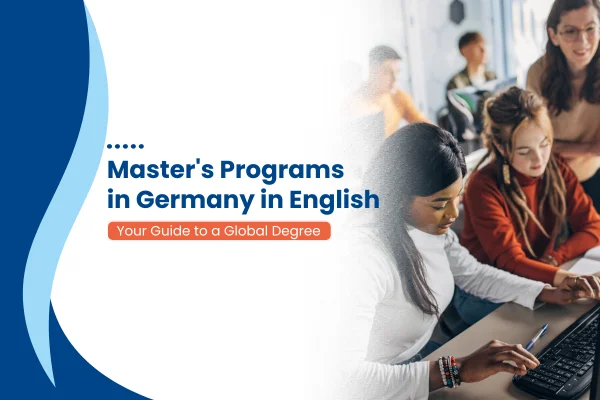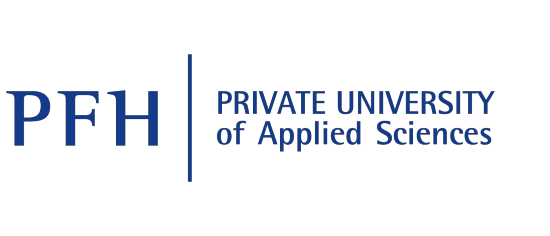

Master's Programs in Germany in English: Your Guide to a Global Degree
You’ve finished your bachelor’s and now you’re looking for a master’s program to get the exposure, not just academically, but globally. Among the preferred study destinations is Germany, well-known for its academic excellence, offering numerous master programs in Germany in English. From tech degrees to an MBA, Germany is a place where ambition meets opportunity. Choosing Germany could be a great move.
In this guide, we’ll tell you everything—from program types and top universities, how to apply, and what it costs. Whether you’re planning to study AI, business, or engineering, you can easily find master’s programs in Germany that match your goals.
Why Choose Germany for a Master’s?
Germany is a non-English speaking country that provides numerous master’s programs in Germany in English. More than 400,000 international students opt for Germany, with 34,702 students from India. The reasons for more and more students choosing Germany for higher studies are:
- Excellent Education- German universities are well-known around the world for their education.
- No or Low Tuition Fees- Studying is free at public universities. Private ones charge fees but give scholarships to help.
- Globally Recognized Degrees- A master’s degree in Germany for international students is valued by employers in most countries.
- Innovation Hub- Germany is ahead in research, tech, and business. Graduates can find careers in AI, management, or product design.
- English-Taught Programs- German universities provide courses that are taught in English for international students.
Types of Master's Programs in Germany in English
Germany offers master’s programs that are meant for international careers. The following are the popular fields:
- Engineering and Technology – These are the most important fields in Germany in terms of academia and industry.
- AI Master Programs in Germany – Opportunities in AI are popular because of the emphasis on digital transformation. Universities like PFH offer advanced master’s programs.
- MBA in Germany for International Students – MBAs are tailored for the global business world, especially in English. You can consider PFH University for MBAs and other business and management programs.
- Sustainability, Design, and Innovation – These are some of the most important programs because of Germany’s leadership in green technologies and product design.
PFH offers master’s programs in Germany in English, built around the needs of international students with small class sizes, career services, internships, and corporate partnerships. Whether one pursues an MBA in Germany for international students or a tech-oriented degree, programs are designed to enable students to launch global careers.
Top Universities in Germany for Masters
Germany has some of the best and oldest universities in Europe that have high international rankings.
Public Universities, a few of them are:
- TUM – Offers English-taught programs in technology, industrial design, and engineering.
- University of Heidelberg – Known for its English-taught programs in areas like life sciences and global-level research.
- RWTH Aachen University – industrial and mechanical engineering.
Private Universities–They offer skill-based master’s programs in Germany in English, like business and tech. Schools like PFH give personal guidance, flexible classes, scholarships, internships, and a close student group to help you succeed in a job.
How to Apply for a Master’s in Germany?
You can follow these steps to apply for a master’s degree in Germany for international students:
- Pick a Program: based on university, location, language of teaching, and the field of study.
- Fulfill the Criteria: You must have a bachelor’s degree, proof of Language proficiency for English (IELTS, TOEFL score), SOP, resume, and recommendation letters.
- Applications: Applications can be submitted through university portals. PFH University also allows students to apply online.
- Apply for a Visa: After receiving the admission letter, apply for a student visa at the German Consulate.
Aim to apply 6-8 months before the semester begins; most programs begin in October, with some offering a spring intake in March or April.
Cost of Studying and Living in Germany (In INR)
Cost-wise, Germany remains an affordable destination for Indian students as compared to the USA, UK, or Australia. However, understanding the average costs helps in financial planning.
Tuition Fees
- Public Universities: Public universities do not ask for tuition fees. But, there is a semester fee for student services and administrative costs (250-350 Euros – ₹22,500 to ₹31,500).
- Private Universities: Institutions like PFH Private University of Applied Sciences provide English-taught programs, with tuition fees around €8,100 -₹7,29,000 per semester. They also offera scholarship to manage the living expenses.
Living Expenses (Per Month)
- Students spend – ₹27,000 – ₹45,000
- Accommodation – ₹13,500 – ₹22,500
- Food/ groceries – ₹9,000–₹11,000
- Transportation and utilities, and for Health insurance, approximately – ₹9,000.
Apart from using education loans and scholarships, students can work part-time to better manage their funds.
Part-Time Work Opportunities for Students
International students in Germany can work for:
- 120 full or 240 half days per year
- Can take part-time jobs or internships in fields of their studies.
- They usually earn €10–€15 on average.
Universities like PFH help students meet companies through events and projects to find relevant internships or part-time jobs. Students earn about €10 to €15 per hour in part-time jobs. If you are studying an AI master’s programs in Germany or an MBA in Germany for international students, part-time work can lead to full-time jobs later.
Conclusion
Germany is an excellent choice to study abroad. It gives high-quality education at low cost, with good job chances after graduation. Master’s programs in Germany in English are available in multiple fields, you can easily find one to suit your profile. Private universities like PFH offer practical training and help you connect with companies. In conclusion, Germany is a smart choice to study master’s programs in Germany in English, like MBA, AI, design, or management.
Frequently Asked Questions
Yes. Universities provide many find master’s programs in Germany. But knowing German helps in everyday communication.
Yes. Graduates from German universities are valued and have an easy option in Europe and many other countries.
Public universities often have no tuition fees. Private institutions like PFH charge around €16,000 – €20,000 per year.
Yes. Students can work part-time up to 120 days a year.
It’s great. As per German law, graduates get up to 18 months for job searching, which they generally get within this period.
